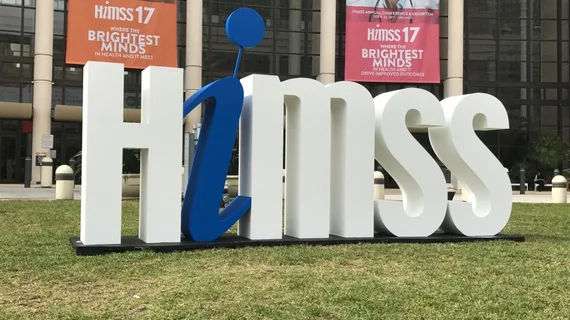The hot topics of HIMSS18: AI, Amazon and analytics
Tens of thousands of healthcare professionals will be heading to the 2018 Healthcare Information and Management Systems Society (HIMSS) conference in Las Vegas in a few days. Last year’s conference was dominated by talk about the promise of artificial intelligence and what Congress was going to do with the Affordable Care Act—so what will health IT leaders be talking about this time around?
HealthExec asked several presenters, exhibitors and attendees that very question. Here’s what they had to say:
Randy McCleese, MSIS, MBA, CIO of Methodist Hospital in Henderson, Kentucky and HIMSS/CHIME CIO of the Year: “Security should be a hot topic as we deal with beaches, ransomware and other forms of malware. Security alone is costing healthcare a tremendous amount and securing systems takes dollars away from items that could be used directly in patient care.”
Heather Hansen, CEO of consulting firm H2Spark and attorney at O’Brien and Ryan: “I think artificial intelligence is definitely a hot topic in medicine. It’s fascinating to me, having spoken to some students at Stanford, how much they push back on artificial intelligence. The use of AI, in all aspects of life but specifically in medicine, in ways that are comfortable with, in ways that people trust and ways that people will actually want their providers using I think is going to be a huge topic.”
Tim McMullen, executive director of the Healthcare Administrative Technology Association (HATA): “As far as technology on the floor, I think prior authorization solutions will be a big deal because everyone’s screaming about it. As far as seminar topics, I think it’s going to be blockchain, AI and trying to see towards the future.”
Brad Lund, director of association management at HATA: “You’re going to see a lot of conversation about the revenue cycle and the adjudication process from the provider’s, patient’s and payer’s perspective. It’s not the process today—we’re looking into the future. How is this going to work when it’s not a transactional-based reimbursement system but rather some sort of incentive system?”
Beth Houck, vice president of client services at SA Ignite: “I’ll be very interested to see what vendors have innovations that help organizations disrupt the prevention-disease-treatment cycle. In particular, I expect there will be some buzz about how analytics can predict a disease or required healthcare intervention prior to it happening, thereby beginning a care management cycle that much earlier. This kind of innovation will help drive down unnecessary costs in a value-based world while also benefiting us as patients.”
Deirdre Ruttle, vice president of strategy at InstaMed: “I think there will be absolutely be buzz around headlines in the news as organizations share different perspectives on what they think of Amazon and others in terms of their ability to deliver on the things they’re talking about. Often you’ll find when you dig down into what they’re talking about, there isn’t a whole lot of substance yet, so there’s always interesting speculation there. I also think there will be discussion about what’s next in technology and what are we doing to talk about AI and blockchain and more recent technology developments. How does that relate to technology we may have at our fingertips already that maybe we’re not taking advantage of enough?”

